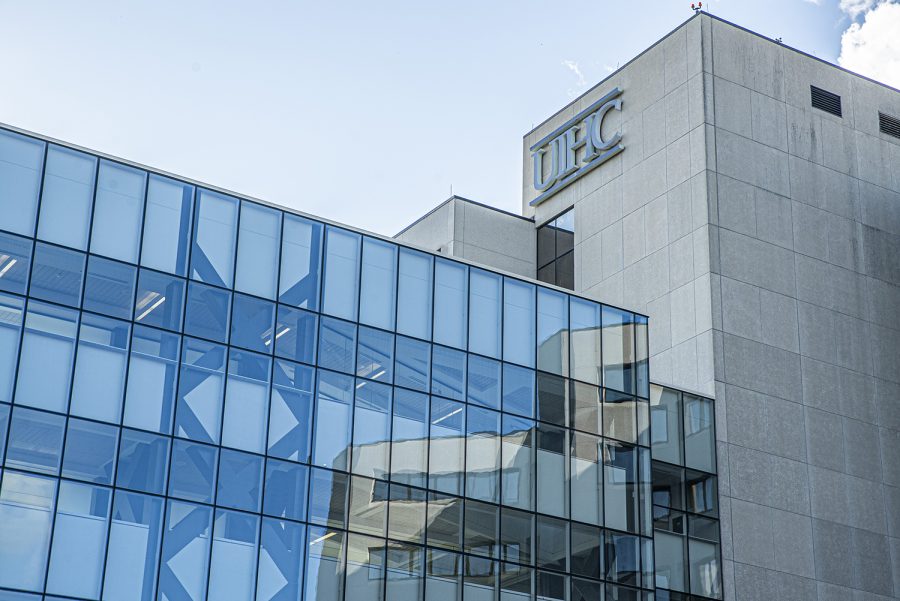Opinion | Hidden fees lead to rising healthcare costs
Hospital patients are charged large amounts of money out of pocket. When health is compromised, this is the last thing people should worry about.
University of Iowa Hospitals and Clinics are seen on Tuesday, June 23, 2020.
September 7, 2022
There are few unpleasant experiences like being sick, but the high costs of health care in the U.S. makes sickness worse.
Most Americans have health care to manage the cost of anything between a routine check-up to an emergency procedure. However, most insurances don’t cover everything.
The amount of money that hospital patients pay out of pocket is not only too high but puts additional strain on their already compromised health.
Ambulances are staffed by health care professionals who can treat patients as soon as they arrive on the scene.
However, it is becoming increasingly popular for people experiencing a medical emergency to call a ridesharing service such as Uber or Lyft instead of an ambulance.
Depending on someone’s insurance and the ambulance services that they use, a single ambulance ride can cost hundreds of dollars before a patient makes it to the hospital. Not to mention, there is a possibility that the patient does not have health insurance at all.
Even the most expensive of Uber rides can’t compete with that, which means more and more people are willing to roll the dice on getting to their destination without the use of emergency services.
Once the patient has arrived at the hospital and, eventually, had their medical issue resolved, the hospital will usually provide a bill with a list of the general fees associated with their visit.
While the average person may not know what their care is, they can at least review their itemized hospital bill, although this is only available upon request.
The devices used to diagnose and treat patients are expensive to buy and operate. An MRI machine can cost between $150,000 and $3,000,000, without installation or operation costs.
However, expecting a patient to pay hundreds or even thousands of dollars out of pocket for their scans while facing some kind of serious health issue adds significant stress to their life.
When people are sick and at their most vulnerable, these hidden fees drive up the cost of their health care. While health care in America lags far behind other developed nations, it is not in the hand of health care professionals to set said fees.
Hospitals have a few options for generating the needed funds.
First, there are several grants available to qualifying institutions. The Agency for Healthcare Research and Quality provides several research grants “to improve the quality, effectiveness, accessibility, and cost effectiveness of health care”.
Hospitals, such as University of Iowa Hospitals and Clinics, also often relies on the generosity of donations. In fact, the hospital recently received its largest donation ever to construct a new patient care building.
As a teaching and research hospital, the success of its programs leads to the success of the next generation of medical students.
Although rising health care costs are a symptom of a larger problem, anything that can be done to ease the burden of those suffering from health issues is worth doing.
Columns reflect the opinions of the authors and are not necessarily those of the Editorial Board, The Daily Iowan, or other organizations in which the author may be involved.














